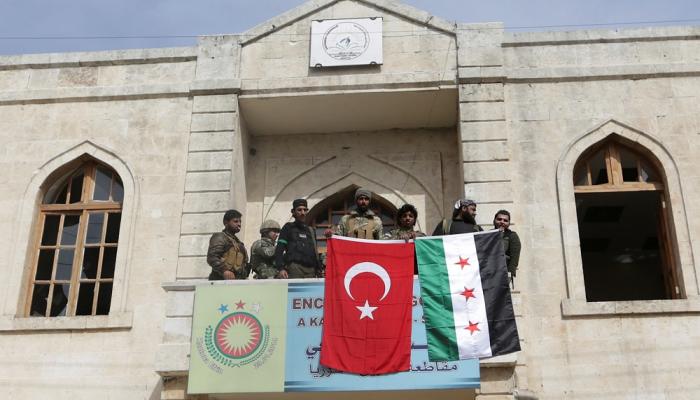International Commission of Inquiry report on violations of Turkish mercenaries in Afrin
The United Nations issued a report on the tense situation in Syria, especially in the Syrian city of Afrin, where the report pointed to the ongoing violations by mercenaries of the so-called "National Army" of the Turkish occupation army.

The report noted that the overall security conditions in Afrin and adjacent districts remained dire with armed factions having carved up the canton into geographic zones of influence. As a result there is a general absence of rule of law and repeated incidents of kidnappings, torture, extortion and assassination. Victims were often of Kurdish origin as well as civilians perceived as being prosperous, including doctors, businessmen and merchants.
The report also noted that human rights abuses committed by the so-called "Syrian National Army" mercenaries have clearly continued.
The report also spoke of attacks by Kurdish forces directed against the Turkish occupation and their mercenaries in the northwest.
The report also pointed out that many of the injuries suffered by residents of Afrin were the result of armed clashes between several groups of mercenaries of the National Army, civilians were regularly subjected to shooting by competing factions, and directly subjected to gross violations of human rights by these groups. For example, on 28 May in Jandres, a 35-year-old father of three girls and a boy died while standing outside his shop during an exchange of fire between two armed groups of Turkish occupation mercenaries.
Throughout Afrin, the volatile security situation continued, creating a chaotic environment in which human rights violations, including abductions, were committed.
The report indicates that the majority of the kidnapped in Afrin are Kurds, were kidnapped during travel or at checkpoints in the first place, or kidnapped from their homes at night.
The Commission documented a case in which an armed group abducted two men and a child with intellectual disabilities on 13 May when they traveled from Afrin to Azaz. One of the abductees was reportedly found dead a few days later and showed signs of torture, while the kidnappers demanded a $ 10,000 ransom for the rest. The accounts received by the commission indicate that the second man was found dead 40 days after the incident, with obvious signs of torture, after which the remains of the child were found.
Individuals, including activists critical of mercenaries in Afrin, were regularly arrested, detained, tortured and blackmailed. For example, one person interviewed described that after his arrest by an armed group in January, he was severely beaten and burned in detention, until he paid $ 600 for his release. In another case in February, an armed group in Afrin arrested one journalist and was accused of exchanging information with foreign news agencies, he was severely beaten during interrogation.
Residents told the commission that the waves of arrests were to provide financial income for armed groups. In this regard, the committee received reports that young people arrested on suspicion of association with Kurdish factions were forced to pay a fine of $ 400 for their release.
Civilians returning to Afrin were denied access to their property after it was seized by members of armed groups and their families. Others had to pay up to several thousand dollars to get their goods and the stolen vehicles.
The commission received several reports concerning the looting of historical and archaeological sites by armed groups, including Tel Jandresa (Jandresa Hill.)
Reports received by the committee also indicated that in recent months severe restrictions had been imposed on women's rights, particularly in areas under the control of armed factions following extremist ideologies. Violations include the imposition of strict rules on clothing for women and girls and restrictions on freedom of movement. At the same time, women and girls have been harassed by members of armed groups, particularly when attempting to cross checkpoints.
The committee considers that there are reasonable grounds to believe that members of armed groups in Afrin continued to commit war crimes of hostage-taking, cruel treatment and torture.
A.H
ANHA













